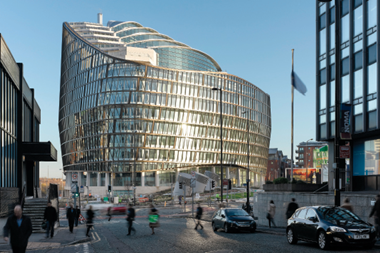Changing occupiers’ demands and “disruptive forces” are permeating the European real estate value chain, according to a sentiment survey by PwC and the Urban Land Institute (ULI).
PwC/ULI said technology, demographics, social change and rapid urbanisation were playing a significant role in investors’ decision-making.
The disruptions have led to investors focusing on cities and assets rather than countries.
More respondents (41%) to the annual Emerging Trends in Real Estate report are considering investing in alternative sectors, compared with just 28% in last year’s survey.
Alternative, operational sectors benefit from rapid urbanisation and demographic shifts, such as healthcare, hotels, student accommodation and data centres.
Lisette van Doorn, chief executive at ULI Europe, said: “Investors are getting more creative in trying to access future prime assets at reasonable prices through more focus on alternatives and development.
“They take more risk on the short term to fulfil their long-term objective for core assets.
“At the same time, more and more players in the real estate industry are starting to address the needs of occupiers, who are seeking harmony between their workplaces and their lifestyle needs.
“Some of the industry’s biggest challenges right now are how to become less about brick and mortar and more about service and the implications this may have for the traditional business models of real estate operators.”
The high street retail and logistics sectors, which have benefited from technological advances and improving economic conditions, are also predicted to fare well this year.
Development is expected to create value in 2016, with 78% of respondents citing the sector as an attractive way to acquire prime assets.
The report said leading property developers, investors and operators were paying more attention to the role the physical workplace plays in talent management and workplace productivity.
The top five European real estate investment markets in 2016 are predicted to be Berlin, for both investment and development prospects; Hamburg, for its diverse occupier base; Dublin, for its future rental growth; Madrid, for its 2.5% vacancy rate in class-A buildings; and Copenhagen, for its office, retail and residential markets.










